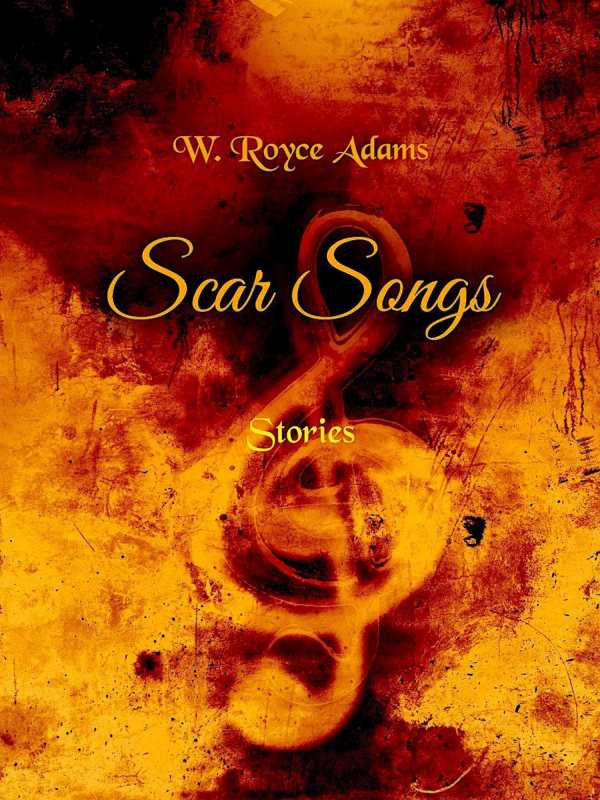Scar Songs
Stories
The direct, poignant short stories collected in Scar Songs tap into universal feelings of loss and regret.
In W. Royce Adams’s short story collection Scar Songs, people cope with loss and their past mistakes as best they can.
In these stories, a teenage employee comes to regret reporting an elderly woman for shoplifting. And during a layover, a man decides to reconnect with his strange yet contemplative friend from high school. Elsewhere, a father realizes too late that he emulated his own father’s worst behaviors. These and other characters face myriad missed opportunities, sudden deaths, and discomfiting epiphanies, through which they all learn the same lesson: that finding a way to deal with one’s past is the only way to move on from it.
The prose is spare and conversational, focusing on each narrator’s voice, memories, and feelings as they navigate the most difficult moments of their lives. Each person has a different way of dealing with trauma. The narrator of “Ever After” swings between bitterness and numbness while his ex-wife dies of cancer. In “The Last Tequila Run,” a timid college student struggles with feelings of betrayal after an encounter with the law and an unexpected revelation from his best friend.
“The Music Messiah” stands out as the only story in which the man struggling with loss is not the one narrating the story; instead, an outsider—an admiring reporter— tasks himself with discovering why an acclaimed musician who could be making millions now plays with fledgling bands. And “Getting Even” is notable for its reflection on a different sort of darkness: in it, a retired professor contemplates a misplaced act of revenge against a deceased colleague.
Many of the characters grew up in the middle of the twentieth century, and their experiences reflect a time when men were expected to take certain actions and behave in certain ways. This has a huge influence on how these characters relate to their families, their careers, and their own emotions; it often hinders their ability to make good choices. Still, the book’s heroes are less memorable than the circumstances that they find themselves grappling with. They come to seem like vehicles by which universal problems and moral dilemmas can be explored. Further, the formatting sometimes muddies a sense of who is talking. This is most obvious in “Scar Song,” which is told almost entirely through dialogue.
Still, these direct, poignant stories tap into universal feelings of loss and regret that come with losing friends, ending relationships, and reviewing old memories. Some wounds may never heal, they suggest, but they will scar over. To what extent they do so, and how the wounded party chooses to carry their scars, is up to them.
Scar Songs is a collection of stories about learning to live with past pain, whether that means keeping it close or letting it go.
Reviewed by
Eileen Gonzalez
Disclosure: This article is not an endorsement, but a review. The publisher of this book provided free copies of the book and paid a small fee to have their book reviewed by a professional reviewer. Foreword Reviews and Clarion Reviews make no guarantee that the publisher will receive a positive review. Foreword Magazine, Inc. is disclosing this in accordance with the Federal Trade Commission’s 16 CFR, Part 255.

